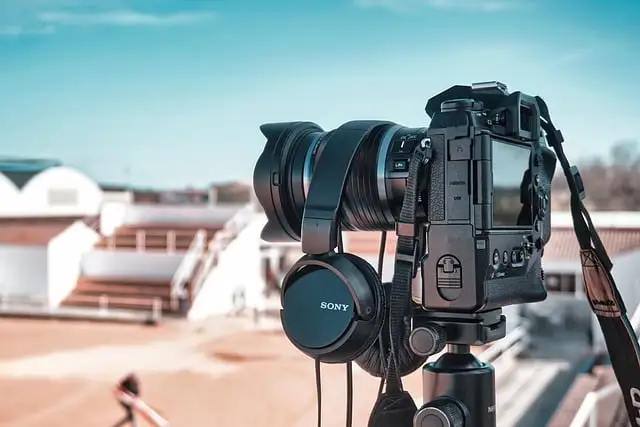Photography Career
Table of Contents
TogglePhotography Career: Mastering the Art Behind the Lens
Embarking on a career in photography is an exciting journey filled with endless opportunities for creativity and self-expression. Whether you’re drawn to portrait photography, landscape photography, or commercial photography, the path to success in this field requires dedication, skill, and a keen eye for detail. In this comprehensive guide, we’ll explore everything you need to know to kickstart your career in photography, from mastering the technical aspects of your camera to building a thriving business. Let’s dive in!
To embark on a Photography Career: Mastering the Art Behind the Lens, a solid educational foundation isn’t always necessary, but acquiring relevant certificates and honing specific skills can greatly enhance your prospects. Consider pursuing courses in photography fundamentals, digital imaging, and post-processing techniques. Additionally, obtaining certifications from reputable photography institutions can validate your expertise and boost credibility in the industry.
Diverse set of skills required in mastering photography career
In the dynamic world of Photography Career, mastering a diverse set of skills is essential for success from developing a unique aesthetic style to operating a camera with precision. Having a keen eye for detail, effective communication skills, and the ability to work collaboratively with teams are just as important as rigor and passion for their work. Creativity is the driving force behind every photograph, fueling innovative approaches and pushing boundaries. Combined with observational skills and attentiveness to capture fleeting moments, photographers weave stories through their images that resonate with viewers and leave a lasting impact. Here is a brief description into each skill set, exploring their significance and how they contribute to the artistry and professionalism of photography.
-
Aesthetic style
Developing an aesthetic style is crucial for a photographer in Photography Career. It involves defining a unique visual identity that sets their work apart from others. This style reflects their personal preferences, artistic vision, and the message they aim to convey through their photographs. By honing their aesthetic style, photographers can create cohesive and memorable bodies of work that resonate with their audience and leave a lasting impression.
-
Operating a camera
Operating a camera skillfully is fundamental for photographers in Photography Career. They must be proficient in handling various types of cameras, understanding their functionalities, and adjusting settings to achieve desired results. This includes mastering concepts such as aperture, shutter speed, ISO, and focal length to control exposure, depth of field, and motion blur. By mastering the technical aspects of their equipment, photographers can capture high-quality images consistently and effectively.
-
Eye for detail
Having an eye for detail is essential for photographers in Photography Career. It involves the ability to notice and appreciate the subtle nuances, textures, and compositions within a scene. Whether capturing intricate patterns in nature, subtle expressions on a subject’s face, or minute details in a product shot, attention to detail elevates the quality and impact of photographs. By paying close attention to every element within the frame, photographers can create compelling and visually engaging images that resonate with viewers.
-
Communication skills
Communication skills are vital for photographers in Photography Career, as they often collaborate with clients, models, and other professionals on shoots. Effective communication involves articulating ideas, providing clear instructions, and listening actively to understand clients’ needs and preferences. Whether discussing project requirements, directing poses, or conveying creative concepts, strong communication skills foster collaboration, trust, and successful outcomes in photography projects.
-
Teamworking skills
Teamworking skills are essential for photographers in Photography Career, particularly in collaborative environments such as fashion shoots, weddings, and commercial projects. Working effectively with models, stylists, makeup artists, and other team members requires the ability to communicate, coordinate, and problem-solve collectively. By fostering a positive and collaborative atmosphere on set, photographers can ensure smooth and successful photo shoots that meet clients’ expectations and deliver outstanding results.
-
Rigor and passion for their craft
Rigor and passion for their craft drive photographers in Photography Career to continually push the boundaries of their creativity and skill. It involves a commitment to excellence, attention to detail, and a relentless pursuit of perfection in every aspect of their work. By maintaining high standards and a strong work ethic, photographers can produce exceptional images that captivate audiences and leave a lasting impact.
-
Creative approach towards work
A creative approach towards work is essential for photographers in Photography Career to stand out in a competitive industry. It involves thinking outside the box, experimenting with new techniques, and exploring unconventional perspectives to create original and innovative images. By embracing creativity and embracing risks, photographers can produce unique and compelling work that resonates with viewers and establishes their distinctive style and identity.
-
Observational skills and attentiveness
Observational skills and attentiveness are critical for photographers in Photography Career to capture fleeting moments, subtle gestures, and spontaneous interactions. It involves being constantly aware of their surroundings, anticipating decisive moments, and reacting quickly to capture them. Whether documenting candid moments at a wedding, capturing wildlife in action, or photographing street scenes, keen observational skills enable photographers to create authentic and emotive images that tell powerful stories.
Understanding the Basics
What is Photography?
Photography is the art and practice of capturing images using light-sensitive materials such as photographic film or digital sensors. It allows individuals to freeze moments in time, preserving memories, documenting events, and conveying emotions through visual storytelling.
Photography covers various categories, including:
– Portrait Photography
– Landscape Photography
– Wildlife Photography
– Fashion Photography
– Event Photography
Portrait Photography :
Stands out as a captivating genre that focuses on capturing the essence and personality of individuals. It involves working closely with subjects to create intimate and expressive portraits that convey emotions and tell stories. Portrait photographers use various techniques, such as lighting, composition, and posing, to highlight the unique features and characteristics of their subjects, resulting in timeless and memorable images.
Landscape Photography:
Another prominent category in Photography Career, celebrates the beauty and majesty of the natural world. It involves capturing vast landscapes, breathtaking vistas, and stunning natural scenes, often showcasing the awe-inspiring power of nature. Landscape photographers meticulously compose their shots, paying careful attention to elements such as lighting, perspective, and foreground-background relationships to create visually striking images that evoke a sense of wonder and appreciation for the world around us.
Wildlife Photography:
It is an exhilarating branch of Photography Career that focuses on documenting the beauty and diversity of animal life in their natural habitats. Wildlife photographers venture into remote and untamed environments to capture fleeting moments of wildlife behavior, from majestic predators on the hunt to playful interactions among different species. With patience, skill, and a deep respect for nature, wildlife photographers create compelling images that inspire awe and raise awareness about the importance of conservation efforts.
Fashion Photography:
This is a dynamic and glamorous field within Photography Career that revolves around capturing clothing, accessories, and fashion trends in a visually appealing and artistic manner. Fashion photographers work closely with models, stylists, and designers to create compelling images that showcase the latest fashion collections and concepts. With an emphasis on creativity, style, and storytelling, fashion photography pushes the boundaries of visual expression and influences trends in the fashion industry.
Event Photography:
This type of photography plays a crucial role in documenting special occasions and capturing cherished memories for Photography Career professionals. From weddings and parties to corporate events and concerts, event photographers are tasked with capturing the essence and emotions of the moment. They must possess excellent interpersonal skills, quick reflexes, and the ability to work efficiently in dynamic and fast-paced environments to ensure that every important moment is immortalized in photographs that clients will treasure for years to come.
Exploring Career Opportunities
Photography offers a diverse range of career opportunities, allowing individuals to pursue their passion in various industries. Whether you dream of becoming a freelance photographer, working for a prestigious magazine, or specializing in wedding photography, there are ample avenues to explore.
Mastering Your Craft
Understanding Camera Settings
To excel in photography, it’s essential to have a solid understanding of your camera’s settings. Familiarize yourself with concepts such as aperture, shutter speed, and ISO to gain full control over your images’ exposure and artistic effects.
Composition Techniques
Composition plays a crucial role in creating visually compelling photographs. Experiment with different techniques such as the rule of thirds, leading lines, and framing to add depth and interest to your images.
Lighting Principles
Lighting is the backbone of photography, shaping the mood, tone, and overall quality of your photographs. Learn to harness natural light, manipulate artificial light sources, and use modifiers to achieve stunning lighting effects in your images.
Building Your Portfolio
Selecting Your Best Work
Your portfolio is a reflection of your skills, style, and artistic vision as a photographer. Curate a diverse selection of your best work that showcases your versatility and expertise across different genres and subjects.
Online Presence and Branding
In today’s digital age, having a strong online presence is essential for attracting clients and showcasing your portfolio. Create a professional website and leverage social media platforms to engage with your audience, share your work, and build your brand as a photographer.
Navigating the Business Side
Pricing Your Services
Determining your pricing structure can be challenging but crucial for running a successful photography business. Consider factors such as your experience, overhead costs, and the local market demand when setting your rates.
Client Relations
Building strong relationships with your clients is key to securing repeat business and referrals in the competitive photography industry. Communicate effectively, exceed expectations, and deliver exceptional customer service to foster trust and loyalty with your clients.
Marketing and Promotion
Effective marketing strategies are essential for attracting new clients and growing your photography business. Explore various marketing channels such as social media advertising, email campaigns, and collaborations with local businesses to reach your target audience and generate leads.
Photography applications across various industries
 In today’s digital age, the scope of a Photography Career: Mastering the Art Behind the Lens is vast and diverse. From traditional avenues like portrait and wedding photography to emerging fields such as drone photography and virtual reality imaging, opportunities abound. Photography finds applications across various industries, including advertising, journalism, fashion, real estate, and e-commerce, underscoring its indispensable role in visual communication and storytelling.
In today’s digital age, the scope of a Photography Career: Mastering the Art Behind the Lens is vast and diverse. From traditional avenues like portrait and wedding photography to emerging fields such as drone photography and virtual reality imaging, opportunities abound. Photography finds applications across various industries, including advertising, journalism, fashion, real estate, and e-commerce, underscoring its indispensable role in visual communication and storytelling.
-
Advertising Industry
In the realm of Photography Career, advertising is a dynamic field where captivating images play a pivotal role in promoting products and services. From glossy magazine ads to eye-catching billboards, photographers collaborate with advertising agencies and brands to create compelling visuals that grab attention and drive consumer engagement. Through creative concepts, strategic lighting, and meticulous attention to detail, photographers in advertising breathe life into marketing campaigns, helping businesses stand out in a crowded marketplace.
-
Journalism
In the fast-paced world of journalism, Photography Career professionals serve as storytellers, capturing the essence of news events and human experiences through powerful imagery. Whether covering breaking news, documenting social issues, or capturing moments of triumph and adversity, photojournalists provide a visual narrative that complements written journalism, offering readers a deeper understanding and emotional connection to the stories unfolding around them.
-
Fashion Photography
Fashion Photography is a glamorous and influential domain within Photography Career, where style and creativity converge to showcase the latest trends and designs. From high-end fashion editorials to runway shows and ad campaigns, fashion photographers collaborate with designers, stylists, and models to create visually stunning images that evoke aspiration and allure. With their keen eye for style, composition, and lighting, fashion photographers shape the narrative of fashion brands and contribute to shaping the industry’s aesthetic landscape.
-
Real estate
In the real estate industry, Photography Career professionals play a crucial role in showcasing properties and attracting potential buyers. Through expertly composed images, photographers highlight the unique features and selling points of homes, commercial spaces, and architectural marvels. From capturing expansive interiors to showcasing breathtaking views and curb appeal, real estate photographers help clients visualize themselves living or working in a space, driving interest and facilitating successful property transactions.
-
E-commerce
E-commerce has revolutionized the way consumers shop, and Photography Career professionals are at the forefront of this digital transformation. From product photography for online stores to lifestyle images for social media marketing, photographers create visually compelling content that drives sales and enhances brand visibility. By showcasing products in the best possible light and creating immersive shopping experiences, e-commerce photographers help businesses thrive in the competitive online marketplace.
Conclusion
Embarking on a photography career is a rewarding and fulfilling journey that offers endless opportunities for creativity, self-expression, and personal growth. By mastering the technical aspects of your craft, building a strong portfolio, and navigating the business side of photography, you can turn your passion for photography into a successful and sustainable career. Remember to stay curious, stay inspired, and never stop exploring the world through your lens. Apart from mastering or venturing into various categories of photography as a professional career, opting for a career as a graphic designer is also a best option.
To improve your photography skills, practice regularly, experiment with different techniques, and seek feedback from experienced photographers. Additionally, consider enrolling in workshops, online courses, or joining photography communities to learn from others and stay inspired.
While having high-quality gear can enhance your photography, it's not necessary to invest in expensive equipment right away. Start with a basic DSLR or mirrorless camera, a versatile lens, and a sturdy tripod. As you progress and your budget allows, you can gradually invest in additional equipment such as lenses, lighting, and accessories.
Finding clients as a freelance photographer requires a combination of networking, marketing, and showcasing your work. Attend industry events, collaborate with local businesses, and leverage online platforms such as social media and photography websites to connect with potential clients. Additionally, offering special promotions or discounts can help attract new clients and build your reputation.
Some common photography mistakes to avoid include poor composition, overexposure or underexposure, lack of focus, and excessive editing. Take your time to compose your shots thoughtfully, pay attention to lighting and exposure settings, and strive for clarity and sharpness in your images. Remember that practice makes perfect, so don't be afraid to experiment and learn from your mistakes.
Staying inspired and motivated as a photographer requires a continuous pursuit of creativity and self-improvement. Surround yourself with inspiring imagery, explore new locations and subjects, and challenge yourself to step out of your comfort zone. Additionally, connect with other photographers, attend photography exhibitions, and seek out opportunities for growth and learning to keep your passion alive.
In addition to technical proficiency in operating your camera and editing software, essential skills for a successful photography career include creativity, attention to detail, communication, and business acumen. Being able to effectively communicate your vision, collaborate with clients, and manage the business aspects of your photography venture are equally important for long-term success.






